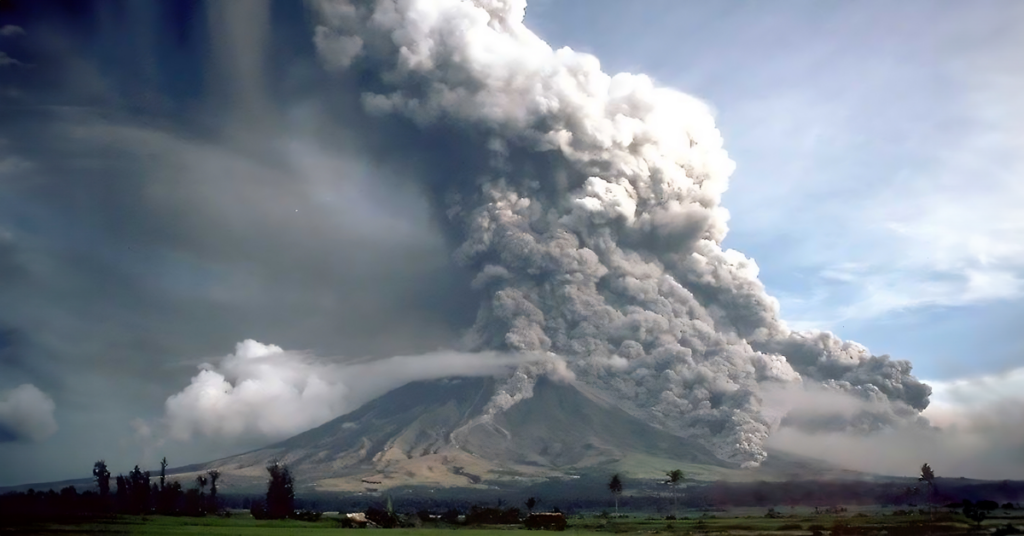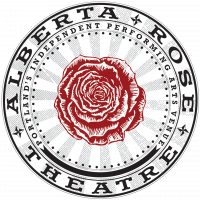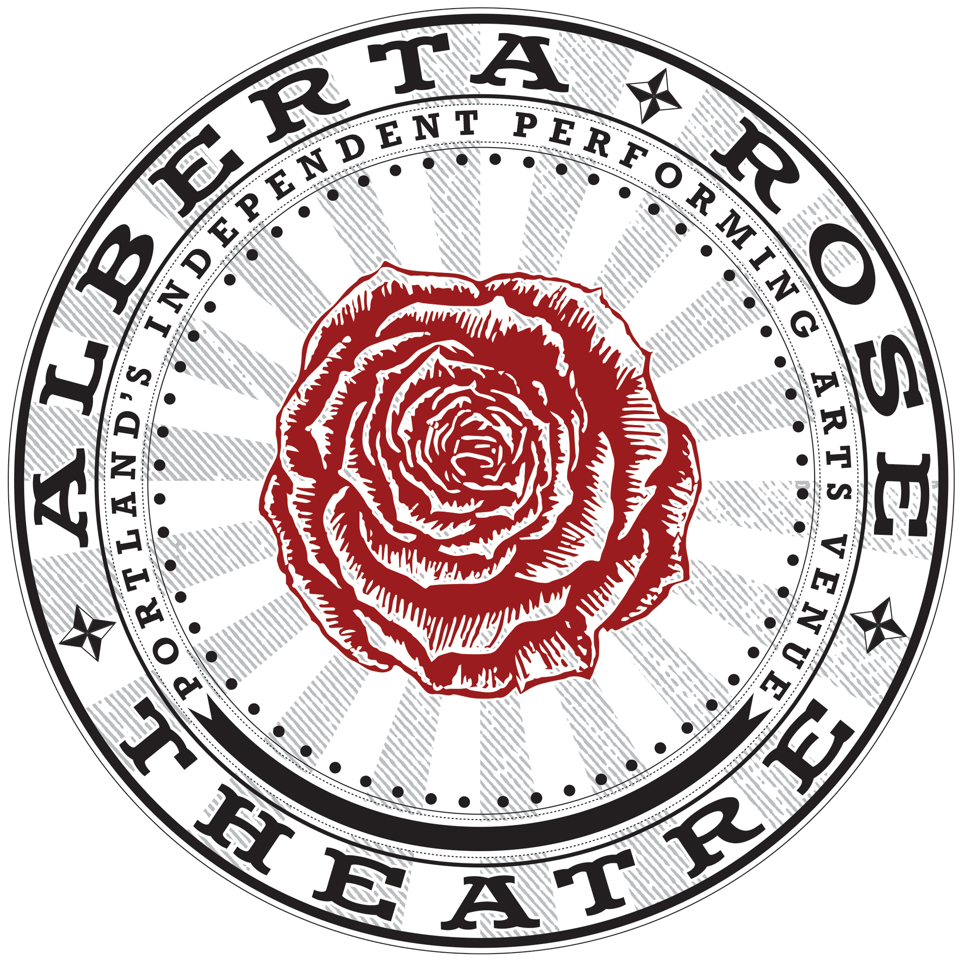Science On Tap – Amazing Adaptations: How Birds Cope with Hardship
Most of us humans are able to retreat to the safety of a building or a well-stocked pantry to wait out storms, smoke, or heat waves…but what do all the birds do? Do they also seek shelter? Do they leave? How long can they wait before they must go try to find food? Such decisions can literally mean life or death.Some amazing adaptations help them decide what to do. For example, information from nearby neighbors can change their brains and how they process stress…and can even affect how large their intestines are! These strategies help them to cope with times of unpredictable food and highlight how important social interactions are for birds.Dr. Jamie Cornelius and her lab study behavioral and physiological strategies that birds use to cope with unpredictable change. In other words, why do some birds survive better than others when the going gets tough? She’ll describe field and lab experiments that help us understand their needs and what strategies might help them to cope with global change. While many talks centered on climate change can fill you with doom and gloom, this one just might give you reason to hope that mother nature has some tricks up her sleeve. Tickets:$15.00 DISCOUNT (senior, student, it’s your birthday, just can’t afford the GA price right now)$25.00 GENERAL ADMISSION$35.00 VIP: Premium seating (front center rows)$45.00 SUPPORTER: Premium seating, pint glass (beer not included), and good feelings for supporting the programDr. Jamie Cornelius is an assistant professor at Oregon State University in the Department of Integrative Biology. She earned a B.S. in Zoology at the University of Washington and a PhD in Animal Behavior at UC Davis. She spent several years as a post-doctoral scholar at the Max Planck Institute of Ornithology in Germany and as a Fulbright fellow at St. Petersburg State University in Russia. Hard work and good luck have brought her back to the Pacific Northwest – and to Vancouver, where she first started her science career at Columbia River High School nearly 30 years ago! Review our Health & Safety Policies HERE
Science On Tap – Within Reach: The Fight to Finish Cancer
Within Reach takes you behind the scenes of an immunotherapy clinical trial at Providence Cancer Institute, where doctors and scientists race against the clock to develop gene-engineered T cells for patients who have exhausted all other forms of treatment. Watch as researchers make international headlines for a breakthrough in pancreatic cancer and meet the patients who are the first in the world to receive this type of innovative immunotherapy. A panel discussion with Providence researchers will follow the 45-minute documentary. Panel members TBA. Tickets:$15.00 DISCOUNT (senior, student, it’s your birthday, just can’t afford the GA price right now)$25.00 GENERAL ADMISSION$35.00 VIP: Premium seating (front center rows)$45.00 SUPPORTER: Premium seating, pint glass (beer not included), and good feelings for supporting the programMinors ok when accompanied by a parent or guardian.Review our Health & Safety Policies HERE
Science On Tap – Lava, Mudflows and Ash: Volcanoes in the Pacific Northwest

The Cascades Range is home to many volcanoes, but how active and dangerous are they? What are the greatest hazards from volcanoes in the Pacific Northwest, who monitors them, and how? At this Science on Tap, Jon Major explores volcanic processes associated with volcanic eruptions and their aftermath, provides insights on the greatest threats posed by the Cascades volcanoes, and reveals how our regional volcanoes are monitored and why. The great 1980 eruption of Mount St. Helens fundamentally changed how scientists viewed volcanic eruptions. The four decades since have seen significant advancements in our understanding of volcanic histories, processes, hazards, monitoring capabilities, and the role that scientists have in communicating with governmental agencies and the public. Tickets:$15.00 DISCOUNT (senior, student, it’s your birthday, just can’t afford the GA price right now)$25.00 GENERAL ADMISSION$35.00 VIP: Premium seating (front center rows)$45.00 SUPPORTER: Premium seating, pint glass (beer not included), and good feelings for supporting the program Jon Major is the Scientist-in-Charge at the US Geological Survey Cascades Volcano Observatory in Vancouver, Washington. He has worked at volcanoes in Washington, Oregon, Alaska, El Salvador, Chile, and the Philippines. He has been working at Mount St. Helens since 1981, and has been with the Cascades Volcano Observatory since 1983. Back by popular demand! This is a repeat show from 9/21/22 at Kiggins Theatre in Vancouver.Minors ok when accompanied by a parent or guardian. Review our Health & Safety Policies HERE
Science On Tap: PERIOD – The Real Story of Menstruation
Menstruation is something half the world does for a week at a time, for months and years on end, yet it remains largely misunderstood. Scientists once thought of an individual’s period as useless, and some doctors still believe it’s unsafe for a menstruating person to swim in the ocean wearing a tampon. Period counters the false theories that have long defined the study of the uterus, exposing the eugenic history of gynecology while providing an intersectional feminist perspective on menstruation science. Blending interviews and personal experience with engaging stories from her own pioneering research, Kate Clancy challenges a host of myths and false assumptions. There is no such thing as a “normal” menstrual cycle. In fact, they’re incredibly variable and highly responsive to environmental and psychological stressors. Clancy takes up a host of timely issues surrounding menstruation, from bodily autonomy, menstrual hygiene, and the COVID-19 vaccine to the ways racism, sexism, and medical betrayal warp public perceptions of menstruation and erase it from public life. Kate Clancy is professor of anthropology at the University of Illinois, Urbana-Champaign, where she holds appointments in the Department of Gender and Women’s Studies and the Program in Ecology, Evolution, and Conservation Biology, and at the Beckman Institute for Advanced Science and Technology. She has written for National Geographic, Scientific American, and American Scientist. Tickets:$45.00 BOOK + GA TICKET: 15% off each individually$35.00 VIP: Premium seating in the front several rows of the center section$25.00 GENERAL ADMISSION$15.00 STUDENT Review our Health & Safety Policies HERE
Science On Tap – Seeing the Big Picture: How the Brain Manipulates our Visual World
When we open our eyes, are we perceiving reality? Why do we fail to agree on the color of “The Dress” (that went viral in 2015)? Have you ever glanced at ticking clock and noticed the second-hand suddenly freeze for a split second? Neuroscience research suggests that the brain evolved to make rapid, best-guesses about the objects in our environment, rather than create a one-to-one representation of the world. Through stories and demonstrations, Dr. Mark Pitzer will discuss some of the effects of this strategy and how our visual system can highlight some objects, delete others, and alter our conscious awareness in an attempt to help us navigate our visual world.We’re excited to welcome Mark Pitzer back to Science on Tap! (Remember that great Making Memories show??)Mark Pitzer, Ph.D. is a neuroscientist at the University of Portland. For the last 25 years he has worked to better understand and treat diseases of the brain, including Parkinson’s and Huntington’s diseases. Currently, his lab studies how developmental influences in the womb can alter the number of dopaminergic neurons involved in movement and reward. Mark is also an award-winning teacher that uses the findings from the fields of learning and neuroscience to invoke enduring enthusiasm, curiosity and deep learning in his college students. Tickets:$45.00 SUPPORTER: Premium seating, pint glass, and good feelings for supporting the program$35.00 VIP: Premium seating in the front several rows of the center section$25.00 GENERAL ADMISSION$15.00 STUDENTReview our Health & Safety Policies HERE
Science On Tap – Kombucha SCOBY: A (mostly) Happily-Ever-After Story of Microbial Cooperation
Kombucha has gone from a weird home-brewed beverage only consumed by health-obsessed hippies (and everyone in Portland, of course) to a popular non-alcoholic alternative to soda. At the heart of this story is the perception of kombucha as healthy, and the relative simplicity of carrying out a kombucha fermentation – make some sweet tea, throw in the “SCOBY” and when it starts to smell vinegary, taste it to see if it’s done. What can go wrong? As it turns out, the simplicity of the fermentation system relies upon a complex mixture of microbes each needing to do their part. That slimy chunk of cellulose that floats on top of an active kombucha ferment, known as “the SCOBY”, contains bacteria and yeast working together, hence the acronym (Symbiotic Culture of Bacteria and Yeast). The yeast in the SCOBY turns sugar in the sweet tea into alcohol, and the bacteria turn that alcohol into the acid that gives the vinegary flavor. Sometimes these processes are not fully synced-up and kombucha may end up tasting a bit too funky, or may not meet the requirements of a non-alcoholic beverage. At this Science on Tap, Dr. Chris Curtin will describe his laboratory’s quest to work out which yeast and bacteria are most commonly found in SCOBY and how they cooperate to deliver tasty, non-alcoholic kombucha. He will also discuss the sometimes controversial topic of whether kombucha is a probiotic beverage.Dr. Chris Curtin is an associate professor of fermentation microbiology at Oregon State University, chairs the Microbiology committee of the American Society for Brewing Chemists, and serves as associate editor for the Journal of the Science of Food and Agriculture. His lab focuses on the role of microbes in beverage fermentation and food stability…and enjoying the consumption of those products! Tickets:$45.00 SUPPORTER: Premium seating, pint glass, and good feelings for supporting the program$35.00 VIP: Premium seating in the front several rows of the center section$25.00 GENERAL ADMISSION$15.00 STUDENTReview our Health & Safety Policies HERE
CONSIDER THIS with Kiese Laymon
Join Oregon Humanities for an onstage conversation with Kiese Laymon, author of How to Slowly Kill Yourself and Others in America and Heavy. Laymon is a Black southern writer from Jackson, Mississippi. In his observant, often hilarious work, Laymon does battle with the personal and the political: race and family, body and shame, poverty and place. This program is part of Oregon Humanities’ 2023 Consider This series on people, place, and power. General AdmissionPrice: $15 Conversation StarterPrice: $30 Ticket sales do not cover the full cost of presenting Consider This events. When you buy a Conversation Starter ticket, you help us keep ticket prices low for everyone. Conversation Starter tickets convey no special benefits beyond good feelings and our gratitude. No CostTo make sure as many people as possible who want to attend are able to, some tickets are available at no cost. (More information below) If you’re able to pay for a ticket, we ask that you do so to help keep this program accessible to all. Click here to register for no-cost tickets to Consider This. About Our Guest Kiese Laymon is the author of the award-winning memoir Heavy, the groundbreaking essay collection How to Slowly Kill Yourself and Others in America, and the genre-defying novel Long Division. Laymon’s IndieBound bestselling memoir, Heavy: An American Memoir, won the 2019 Andrew Carnegie Medal for Excellence in Nonfiction, the 2018 Christopher Isherwood Prize for Autobiographical Prose, the Austen Riggs Erikson Prize for Excellence in Mental Health Media, and was named one of the 50 Best Memoirs of the Past 50 Years by The New York Times. A personal narrative that illuminates national failures, Heavy is defiant yet vulnerable—an insightful, often comical exploration of weight, identity, art, friendship, and family. When Laymon was a contributing editor at Gawker, he wrote an essay called “How to Slowly Kill Yourself and Others in America.” This harrowing piece, which describes four incidents in which Laymon was threatened with a gun, evolved into a collection of lacerating essays on race, violence, celebrity, family, and creativity. In Laymon’s novel, the NAACP Image Award-winning Long Division, 14-year-old City, a newly minted YouTube star, is sent to stay with family in rural Melahatchie, Mississippi. What happens next transgresses the boundaries of fiction and reality, present and past, as City travels through time. Laymon founded the Catherine Coleman Initiative for the Arts and Social Justice, a program aimed at getting Mississippi kids and their parents more comfortable reading, writing, revising and sharing. He is the Libby Shearn Moody Professor of English and Creative Writing at Rice University. Review our Health & Safety Policies HERE
Consider This with Father Greg Boyle
Join Oregon Humanities for a conversation about community, belonging, and ending violence with Father Greg Boyle, founder of Homeboy Industries, a gang intervention, rehab, and reentry program based in Los Angeles.Father Boyle is a Jesuit priest who served as a pastor in Boyle Heights during the wave of gang-related violence that began in the 1980s and peaked in 1992, when more than one thousand people were killed in the city. While law enforcement and criminal justice authorities turned to suppression and mass incarceration to address gang violence, Boyle and members of his parish and community adopted a radical approach: treating gang members as human beings.Today, Homeboy Industries employs and trains former gang members in a range of social enterprises and provides critical services to thousands of people each year.This event is part of Oregon Humanities’ series on Fear and Belonging. General AdmissionPrice: $15 Conversation StarterPrice: $30 Ticket sales do not cover the full cost of presenting Consider This events. When you buy a Conversation Starter ticket, you help us keep ticket prices low for everyone. Oregon Humanities uses income from Consider This ticket sales to pay for venue rental and honoraria for our guests. Conversation Starter tickets convey no special benefits beyond good feelings and our gratitude. No Cost To make sure as many people as possible who want to attend are able to, we make a portion of tickets available at no cost. (More information below) If you’re able to pay for a ticket, we ask that you do so to help keep this program accessible to all. Please click the link below to register for no-cost tickets. Click here to register for no-cost tickets to Consider This. About Our GuestFather Greg Boyle is the author of several books, including Tattoos on the Heart, Barking to the Choir, The Whole Language, and most recently Forgive Everyone Everything. He has received the California Peace Prize, has been inducted into the California Hall of Fame, and was named a Champion of Change by President Barack Obama in 2014.
Consider This with Eli Saslow
Join Oregon Humanities for a conversation about poverty and addiction in America with Eli Saslow. Eli Saslow is a national reporter for the New York Times. His recent reporting has focused on homelessness, inequality, and opioid addiction in Arizona, California, and Oklahoma. He lives in Portland. This conversation will explore how intersecting crises of housing, drug addiction, and mental health affect people and communities across the country. We’ll also discuss the stories we tell about these crises. From what perspectives are they told? And who are they for? General AdmissionPrice: $15 Conversation StarterPrice: $30 Ticket sales do not cover the full cost of presenting Consider This events. When you buy a Conversation Starter ticket, you help us keep ticket prices low for everyone. Oregon Humanities uses income from Consider This ticket sales to pay for venue rental and honoraria for our guests. Conversation Starter tickets convey no special benefits beyond good feelings and our gratitude. No Cost To make sure as many people as possible who want to attend are able to, we make a portion of tickets available at no cost. (More information below) If you’re able to pay for a ticket, we ask that you do so to help keep this program accessible to all. Please click the link below to register for no-cost tickets. Click here to register for no-cost tickets to Consider This. About Our Guest In his Pulitzer Prize-winning reporting, Eli Saslow, who has been called “one of the great young journalists in America,” reveals the human stories behind the most divisive issues of our time. From racism and poverty to addiction and school shootings, his work uncovers the manifold impacts of major national issues on individuals and families. Saslow has twice won the Pulitzer Prize: first in 2014 for Explanatory Reporting for a yearlong series about America’s food stamp program for the Washington Post, later collected into the book American Hunger; and in 2023 for Features for his coverage of people struggling with the pandemic, homelessness, addiction and inequality.
CONSIDER THIS with Vanessa Veselka
Oregon Humanities presents a conversation about class, power, and labor with Vanessa Veselka. Vanessa Veselka has been, at various times, a teenage runaway, a sex-worker, a musician, a student of paleontology, a union organizer, a cab driver, and a mother. She is the author of the novel The Great Offshore Grounds, which won the Oregon Book Award for fiction in 2021, and Zazen, which was awarded the 2012 PEN/Bingham Prize for debut fiction. Her short fiction appears in Zyzzyva and Tin House Magazine, and her essays appear in the New York Times, GQ, the Atlantic, Bitch Magazine, and Best American Essays. This program is part of the 2023–24 Consider This series, People, Place, and Power. General AdmissionPrice: $15 Conversation StarterPrice: $30 Ticket sales do not cover the full cost of presenting Consider This events. When you buy a Conversation Starter ticket, you help us keep ticket prices low for everyone. Conversation Starter tickets convey no special benefits beyond good feelings and our gratitude. No CostTo make sure as many people as possible who want to attend are able to, some tickets are available at no cost. (More information below) If you’re able to pay for a ticket, we ask that you do so to help keep this program accessible to all. Click here to register for no-cost tickets to Consider This. Minors ok when accompanied by a parent or guardianReview our Health & Safety Policies HERE

